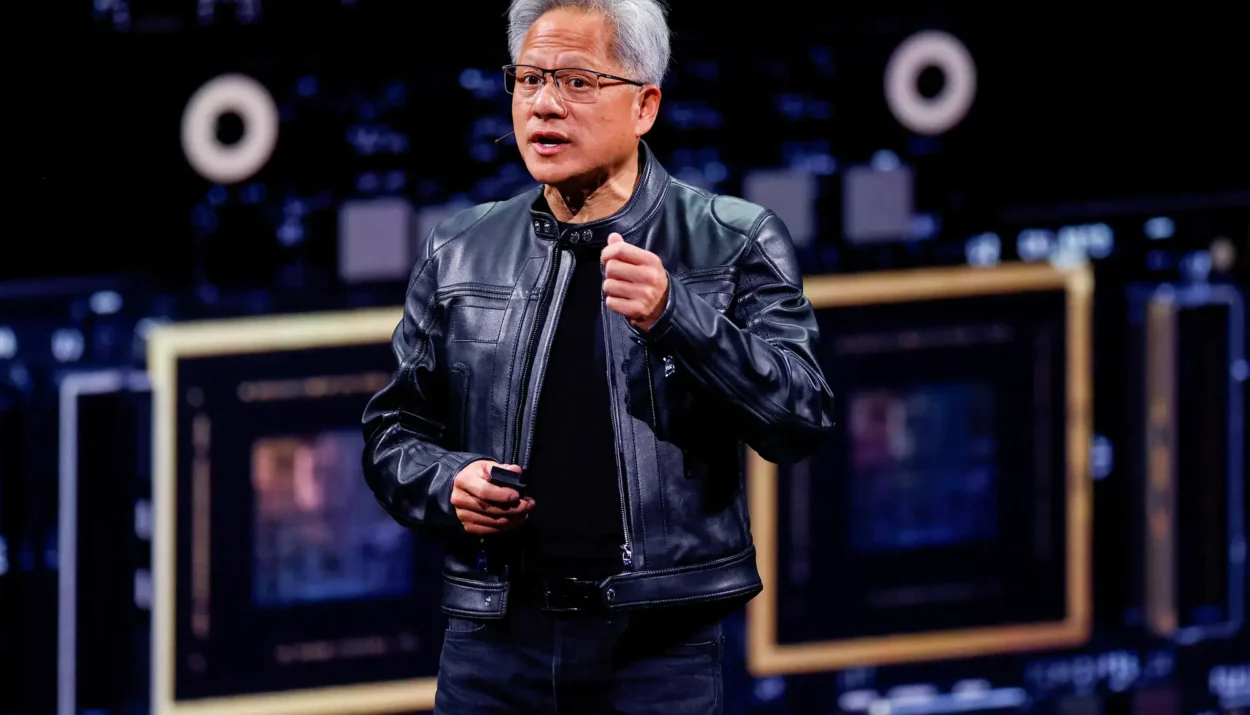Nvidia may be the world’s most valuable company, but its CEO and cofounder Jensen Huang barely cracks the top 10 richest people. With an estimated net worth of $162.3 billion, Huang ranks just behind Warren Buffett, whose Berkshire Hathaway is worth only a fraction of Nvidia’s market value.
A Smaller Stake in a Massive Company
The key reason? Huang owns less than 4% of Nvidia.
When he cofounded the AI chip giant in 1993, he held about 12.8% of the company. But after decades of stock issuances and employee equity programs, his stake has been heavily diluted.
If Huang had maintained that original 12.8%, it would now be worth over $500 billion, easily placing him among the top three wealthiest people on Earth.
By contrast:
- Elon Musk owns 13% of Tesla and 42% of SpaceX, giving him a fortune of $383 billion.
- Bernard Arnault controls roughly half of LVMH and is worth $164 billion.
- Warren Buffett still holds about 14% of Berkshire Hathaway despite years of donations.

HOVER TO REVEAL NET WORTH BY YEAR
The Cost of Rewarding Talent
Nvidia’s success has come with one expensive side effect: stock-based compensation.
The company reported $14 billion in unearned employee equity awards as of July, part of a long-term strategy to attract and retain top talent in the hypercompetitive AI sector.
Since going public in 1999, Nvidia’s outstanding shares have exploded from a split-adjusted 1.7 billion to more than 23 billion, a 14-fold increase.
While Nvidia has repurchased some shares to offset dilution, the sheer volume of stock grants has steadily reduced Huang’s ownership percentage.
Sales and Prearranged Trades
Huang has also sold shares over time — including a prearranged plan to sell up to 6 million shares in 2025, worth roughly $1 billion at current prices.
Even so, his net worth has soared alongside Nvidia’s historic rise, which has added trillions in market value since the AI boom began in 2023.
Jensen Huang built Nvidia into a $3.7 trillion powerhouse — the engine behind the AI revolution.
But his decision to share ownership broadly with employees, coupled with years of dilution, means that while Nvidia dominates global markets, its visionary founder ranks lower on the billionaire leaderboard.
Bottom Line: Huang’s fortune may lag behind Musk’s or Arnault’s, but his company’s influence — powering everything from AI data centers to self-driving cars — makes him one of the most consequential CEOs of the century.










